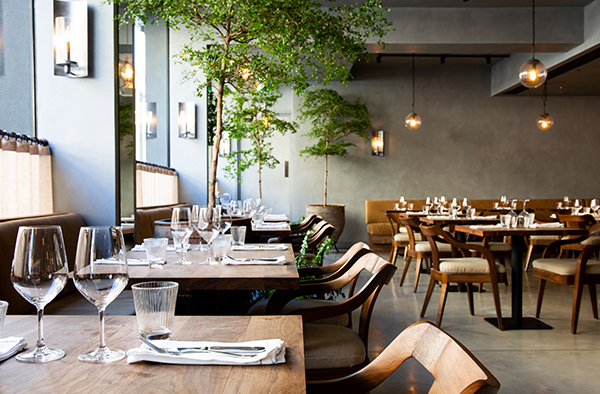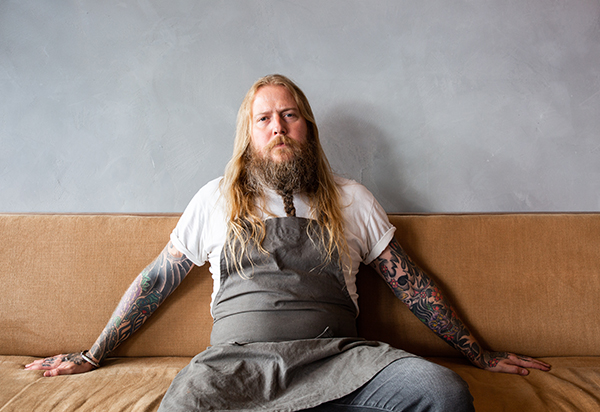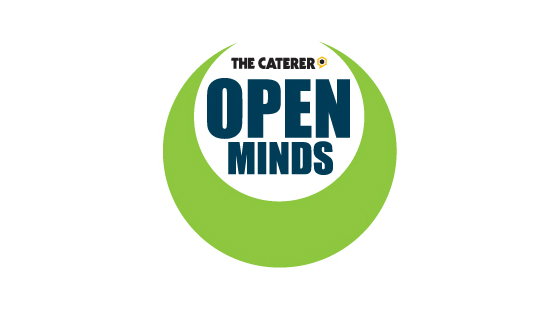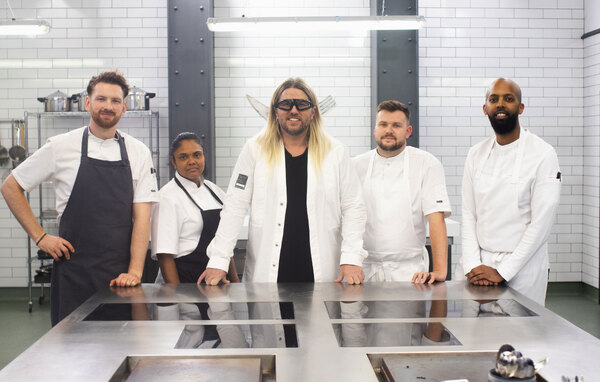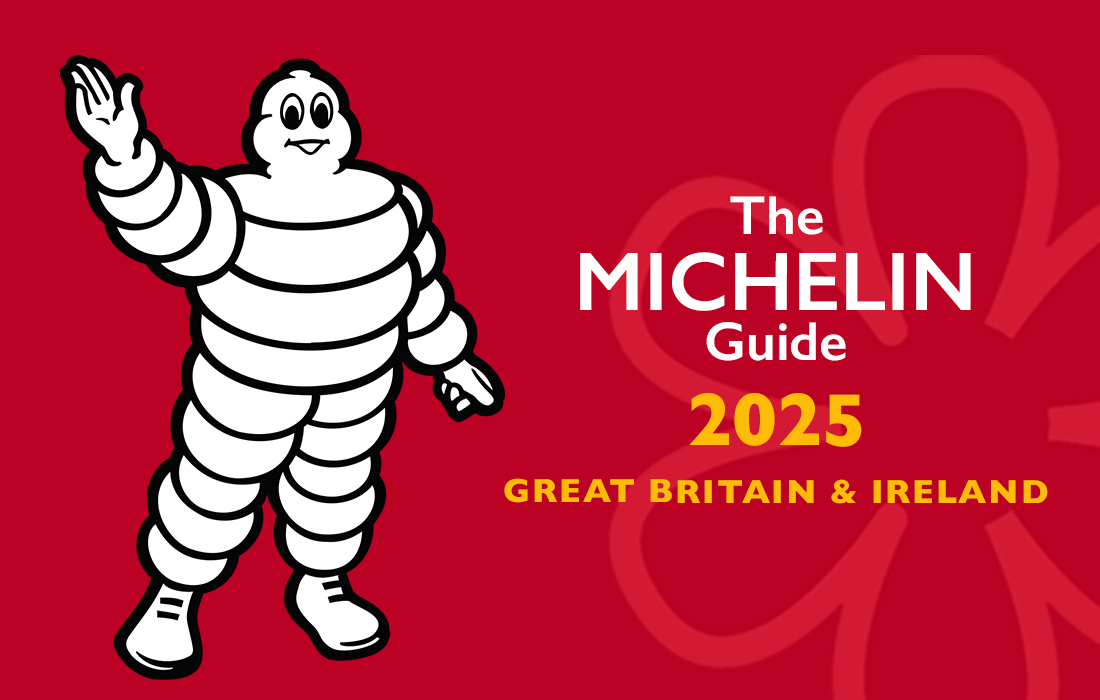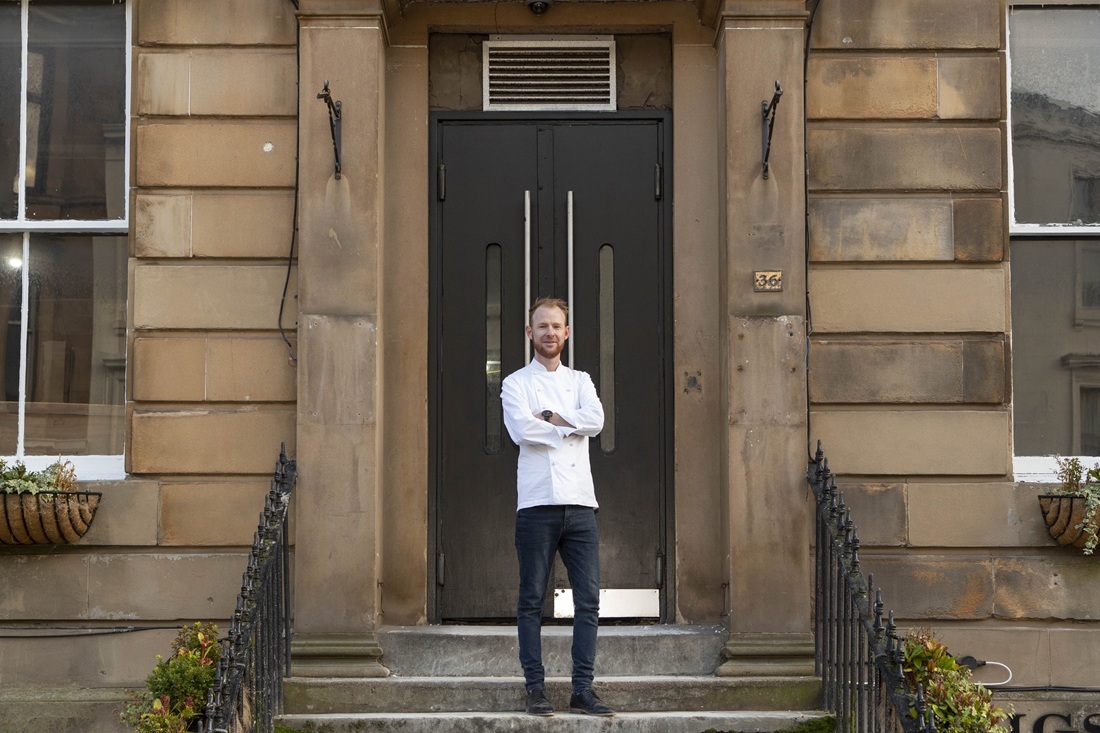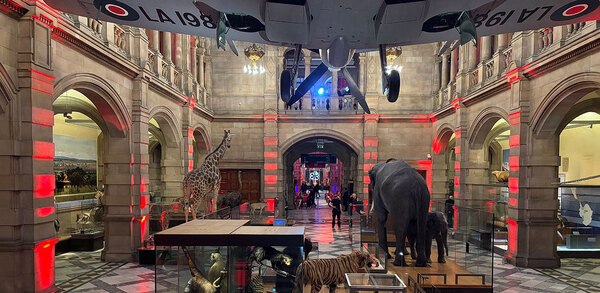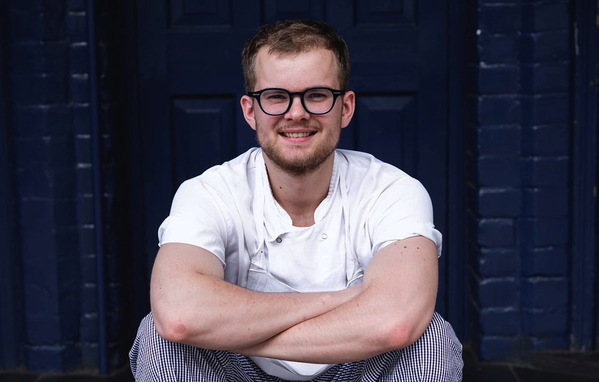The Caterer interview: St Leonards' Andrew Clarke on combating the stigma around mental health
Andrew Clarke is chef-director at the St Leonards and Brunswick House restaurants in London as well as the founder of the Pilot Light campaign, which is devoted to combating the stigma surrounding mental health in hospitality. He tells Katherine Price why the industry needs to do more to support its people
Do you think people talk about mental health in hospitality?
People are talking about it more than they used to, and this is a very good thing. It's definitely a recognised problem. And yet in my short journey of bringing Pilot Light to life, I still get people telling me how their bosses are not doing anything about it and treating people badly because of their illnesses. It's worrying that even though there's a very strong narrative so many people are turning a blind eye to it.
Is it a particular problem for hospitality?
What can employers do to make hospitality a more welcoming environment for people with mental health problems?
Itâs difficult, particularly for small businesses. We run with small teams and small budgets. However, I think what we can do is offer workplaces where itâs a little easier to work. The hours may not be easy, and sadly the pay isnât always great, but we can give that little bit more back and encourage a better work-life balance. The answer is a lot of little things, and every person needs something different. We canât necessarily do anything about pay, we canât necessarily do anything about the hours, but we can do a lot about bullying.
There is a perception that the industry has a bullying culture â" is it getting better?
Iâm still hearing horror stories. Since Iâve started talking about Pilot Light and what I want to do, the amount of people that get in touch with me and tell me their stories⦠One guy very recently was telling me about how his bosses refuse to give him time off. Itâs exploitation, because they know the person needs that job because of family or other responsibilities, so people are caught in a hole, and thatâs frustrating.
One of the most inspiring people I ever worked with was Phil Howard â" there wasnât a raised voice in the kitchen. It was hard graft and long hours, and the prep seemed to go on forever, but what an inspiring person; to have a Michelin star for so long without really needing to raise his voice. It can be done.
Youâve mentioned before about seeing employers âshamingâ their employees on social media, is that also a form of bullying?
Calling your staff members out on social media â" what example are you setting? Youâre a leader. Youâre a leader of a team. You have a responsibility to your team. Donât get me wrong, I will call someone out in the kitchen, but I donât drag it all the way through service.
Businesses in this industry are also exposed to nasty social media comments and reviews, could that be having an impact?
Much like encouraging people into the industry and gearing people up for a life of hard work, we need to give people the armour to deal with this sort of thing. There are people who donât know how to deal with trolls. I donât really look at my social media â" I post on it and thatâs it. Fortunately, I donât get too many hurtful things. It could be hurtful, if I took everything too seriously â" we need to gear people up for that.
Tell me more about where Pilot Light is now?
Itâs still in the early stages. Sarah [Restall, of Time to Change, a long-running campaign under mental health charity Mind that addresses the stigma around mental health] has taken a lot of it off our hands.
Opening a new site, having two restaurants, launching a campaign, writing a book and all these other things Iâm trying to do⦠I had a lot of energy for wanting to start this campaign, but at the same time I was naïve to not realise how deep it goes. I realised that this is a full-time job for quite a few people. It didnât deter me â" it just means that itâs a slower process and I need to find the right people to do it.
Thereâs a lot of stuff lined up for next year. But for now, we need people to share their stories and continue to talk about this.
How important is talking about mental health to de-stigmatise it?
The more people talk about it, the less itâs a thing. Itâs only a taboo because weâve made it a taboo.
I know what itâs like â" when you are going through depression, you canât talk about it. Itâs not even about the shame or appearing to be weak, itâs just you donât want to talk. You canât be bothered to get out of bed. You lie there in this stunned, awake coma. Itâs a very weird feeling and it takes a lot to switch that mindset.
When I was going through it, I didnât know what I wanted to do, I didnât know where I wanted to be. The only thing I did know was that I didnât want to be there and that was part of my drive to get through it.
When did you become aware you might be having mental health problems?
The start of it was that I was in a very shitty job, which was high-paying and I thought I could stick it out for a year and bank the cash, but it was so demoralising. It wasnât cooking â" I was walking round with a clipboard. It was exhausting and I didnât necessarily have the tools around me to do it. At the same time I was coming home and my girlfriend would be away for long periods of time, so I had no one to talk it through with. I would come back to an empty flat.
I got out of that job eventually. I thought, âThis is just exhausting, Iâm a grown man almost crying on the way to work.â I hated it that much, so I left with immediate effect. A few things were on the cards: my girlfriend was coming home and we were going to spend Christmas together, and then she came home and left me immediately. I just sat in silence for about two days and didnât move.
What helped you break through that?
I felt a bit that Iâd had enough of the industry; I just didnât want to cook anymore, but I made the decision to come in as Jackson [Boxer]âs partner at Brunswick House and redo the menu, and that was the thing that saved me.
I was there 100-plus hours a week, and it was good for me to do that, to focus my energy and not sit in the flat in silence, with my brain ticking over the why, when, how, what, the negative questions you ask yourself. It was just me and my sous chef, the two of us cooking every day, and I liked it, and I liked the food that I was putting out.
Itâs really hard to write menus and create dishes when you have no appetite â" I wasnât eating for days on end, but then the reviews started coming in and they gave me that little lift each time. Eventually, after about six months, I pulled out of it. I gave up drinking and general partying for a good six months, so I didnât have a crutch to fall back on.
Are there any coping strategies you would recommend, or anyone to speak to?
I would always recommend speaking to Mind. I am not an authority on any of this â" all I can do is tell my story, because mental health is so vast and peoplesâ coping mechanisms are all very different. I wouldnât dare offer advice. I would merely suggest a few things. There are a lot of people that make certain lifestyle and dietary changes â" stop the booze, do yoga â" and they have more positive outlooks.
When the positivity is there, the shit doesnât stop being thrown at you, you just learn how to deal with it and process it better. That was a big thing for me. I would post positive things around my flat. Even to the point where I would put a positive word on the wall near my bed, so it was the first thing Iâd see when I woke up. Get your mindset as positive as you can. There are so many different ways of doing this: exercise, rest, meditation, dropping drink and drugs for a little while. I wonât tell people what to do, but there are some commonsense rules there.
Getting back into martial arts was a good thing for me. It gets a lot of negative energy out when youâre hitting on a bag. I also found myself following a vegan diet. Iâm not going to say it was all that, but it was a contributing factor because there were so many things that I changed: my diet, my outlook, what I was reading, how I was living â" everything just made an impact.
Where would you like hospitality to be with regards to supporting peoplesâ mental health? What would be your ideal scenario?
We would be in a better place if we addressed it and continued to support people, because there have been too many talented people whose careers have been cut short, and peoplesâ lives have been cut short because the help wasnât around for them. An understanding figure wasnât there to give them guidance.
Weâve got an amazing industry. I wouldnât want to be in another industry, but I want our industry to clean itself up and show other industries that we are better than them. It can be done.
⢠If you feel like you may want to talk about your mental health, organisations such as Mind (www.mind.org.uk), Time To Change (www.time-to-change.org.uk) and the Samaritans (www.samaritans.org) can offer help. Industry charity Hospitality Action offers a range of counselling and other support for hospitality professionals suffering stress-related symptoms via its Employee Assistance Programme. Details are available at www.hospitalityaction.org.uk. To find out more about Andrew Clarkeâs work at Pilot Light, visit www.pilotlightcampaign.co.uk
Helping Hands
Photographs of chefsâ hands, including Andrew Clarkeâs, will be exhibited and auctioned off next month to fundraise for the Pilot Light campaign.
Food photographer Joakim Blockstrom will be auctioning off his photographs of chefs including Pierre Koffman, Phil Howard, Ollie Dabbous and Ravinder Bhogal.
The event will take place at Carousel Next Door in Londonâs Marylebone on 12 November at 7pm. A number of restaurants have contributed tables and experiences (including a day in the kitchen with Ollie Dabbous, followed by tea for two at Hide restaurant) which will also be auctioned off. Go to www.tickettailor.com/events/shuttlecockinc/203823 for tickets
CV 2018-present Chef-patron, St Leonards, Shoreditch
2017-present Co-owner, Jimâs Cafe, Clapton
2015-present Chef-director, Brunswick House, Vauxhall
2013-2015 Head chef, Ritaâs, Hackney
2010-2013 Head chef, Salt Yard, Fitzrovia
2007-2008 Part-time at the Anchor & Hope in Londonâs Waterloo and private/event catering
2005-2007 Head chef, the Swan, West Malling, Kent
TO READ THE CATERERâS FULL MENTAL HEALTH IN HOSPITALITY REPORT, DOWNLOAD YOUR FREE COPY HERE



